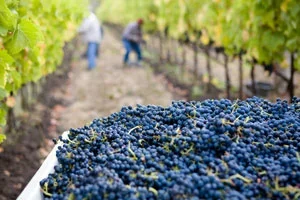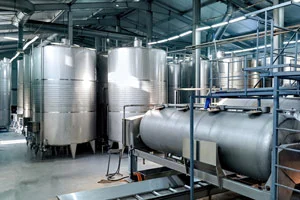- At Agrovin, we help winemakers in their difficult task of guiding the refining of their wines to adapt to new market trends, to those red wines that consumers demand and that stand out for being well-balanced and structured wines, where fruit and wood notes merge in search of the perfect balance.MARKET TRENDSThe so-called winelovers and, in general, anyone who appreciates wine in any of its types, varieties or ranges, does so for a reason: to enjoy the sensory pleasures awaken by its nuances.
Over the years, trends in the wine sector have gone through countless changes worldwide. In our country, we have imported fashions from other parts of the world just as we have been an example to others, as Spanish wines enjoy a very good reputation.
From full-bodied, astringent wines with a lot of tradition to fresh, fruity, low-alcoholic wines, with pale tones, or more vivid colours, crispy wines and a long etc.
Changes associated with new trends that show that wine is a living element that needs changes, adapting to times, places and consumers that raise the qualities of a wine to a higher level and make fads that can last for years or disappear as quickly as they arrive.
We are currently in one of those moments in which the red wines that have been and will continue to be the protagonists of unique, memorable moments and occasional encounters, capable of filling space and lasting over time, are breaking through and giving rise to a new fashion, where the predominant profiles are varied, but capable of coexisting.
- Wines aged in wood, but that preserve the fruit flavour.
- Structured wines, but without astringency.
- Unstructured and very fruity wines.
- Wines without sugar, but with sweetness.
- Long-lived wines, but without sulphites.
- Organic and even vegan wines.
The Agrovin Group is an expert and is aware of these trends. The Group has experts who are close to those who consume, enjoy and elevate the wines. Today’s consumer expects a red wine to be structured and complex, but at the same time simple and pleasant, with respect for the fruit and a lot of kindness. Moreover, today’s consumer is looking for aromatic, elegant, fresh wines, that is, with fruit as the main protagonist, but with subtle notes of wood as a base that will ensure the wine is not so homogeneous or even boring.
WHAT ARE OAK ALTERNATIVES?
Oak alternatives first came into use in France in the 19th century. Apparently it was an unusual practice and was mainly used to improve the sensory characteristics of some wines by adding chips of oak wood or natural trees without any type of toasting.
Its use spread to wine-producing countries in the early 1960s and it was not until 1993 that its use in oenology was regularized in the United States.
In Europe, there were some doubts about its use until the 2000s when finally, in 2006, Commission Regulation (EC) No. 1507/2006 authorized it, allowing European producers to compete in a very competitive and constantly evolving market. . Currently, the new EU Delegated Regulation 2019/934 [3] regulates the use of oak wood chips in oenology, intended for various technological purposes. There are different types of oak alternatives on the market in terms of formats, origin of the wood and application.
There is currently a growing trend in the use of alternatives worldwide. In 2021, sales of alternatives at the global level reached 279.1 million dollars, and it is estimated that, in 2029, figures will grow to 470.8 million dollars, based on data from the latest report published on The white book of oak alternatives.
Its application makes it possible to improve the nuances of the wine during the production, aging and subsequent refining processes, depending on the format, and offers a wide variety of benefits in terms of defining nuances and adding complexity, but also greater precision, control, less investment and, in terms of efficiency, greater savings in space and labour in the warehouse.
The origin of the AGROVIN Group alternatives is very recent, specifically since 2014 as a result of a study on the different products on the market and the main trends in wines with wood. The Group sought an alternative to oak that would be a complement to the barrel, which interacted with the wine in another way to supply fewer tannins and oxygen.
SPIRIT, THE LINE OF OAK ALTERNATIVES DEVELOPED BY THE AGROVIN GROUP
The Agrovin Group has developed various oak alternative formats under the Spirit brand:
Chips
The Agrovin group is the only one on the market that has Iberian oak chips (Quercus pyrenaica). They are fundamentally used to transfer the oak compounds to the wine for a relatively short period of time, between a few weeks and a couple of months. The wines obtained with this format are characterized as having a well-defined profile depending on the type of product, botanical origin and toasting. For the proper integration of the benefits of the wood into the wine matrix, a stage subsequent to the rest and integration treatment is recommended. Its format makes it a very versatile product and that is why its use can be extended to many stages of winemaking.
There are two types of chips:
Creation chips
Used to refine wines after fermentation. Available in three formats:
- No. 1 Pure: It is a chip that mixes different botanical and roasted origins to achieve unique properties with sweetness and respect for the fruit.
- No. 2 Core: offers intensity and complexity of vanilla and spicy notes
- No. 3 Roast: indicated to obtain persistent roasted and smoked notes.

Creation chips. From left to right: pure, core and roast
Alcoholic fermentation chips
Designed solely for the harvest period and available in two formats:
- White: increase in freshness and effective sensation for refining white wines.
- Nature: for refining red wines and rice grain format. It is the only chip on the market that is 100% native Iberian oak (Quercus pyrenaica).
Dominos and staves
Large format. Characterized by yielding their compounds over longer time periods, from a couple of months to half a year. The result is a perfect integration in the wine, resembling to a greater extent that obtained through the use of barrels.
Topping
Exclusive to Agrovin due to its design, it is a format with a large wood-wine contact surface that allows the wood compounds to yield in a short space of time (days).
This format is suitable for quick treatments aimed at a specific wine profile.
It has been designed to provide a very specific and concise impact with a contribution to mouthfeel that is not at all aggressive and notable for its sweetness and unctuousness.
You can see our entire Spirit range here

